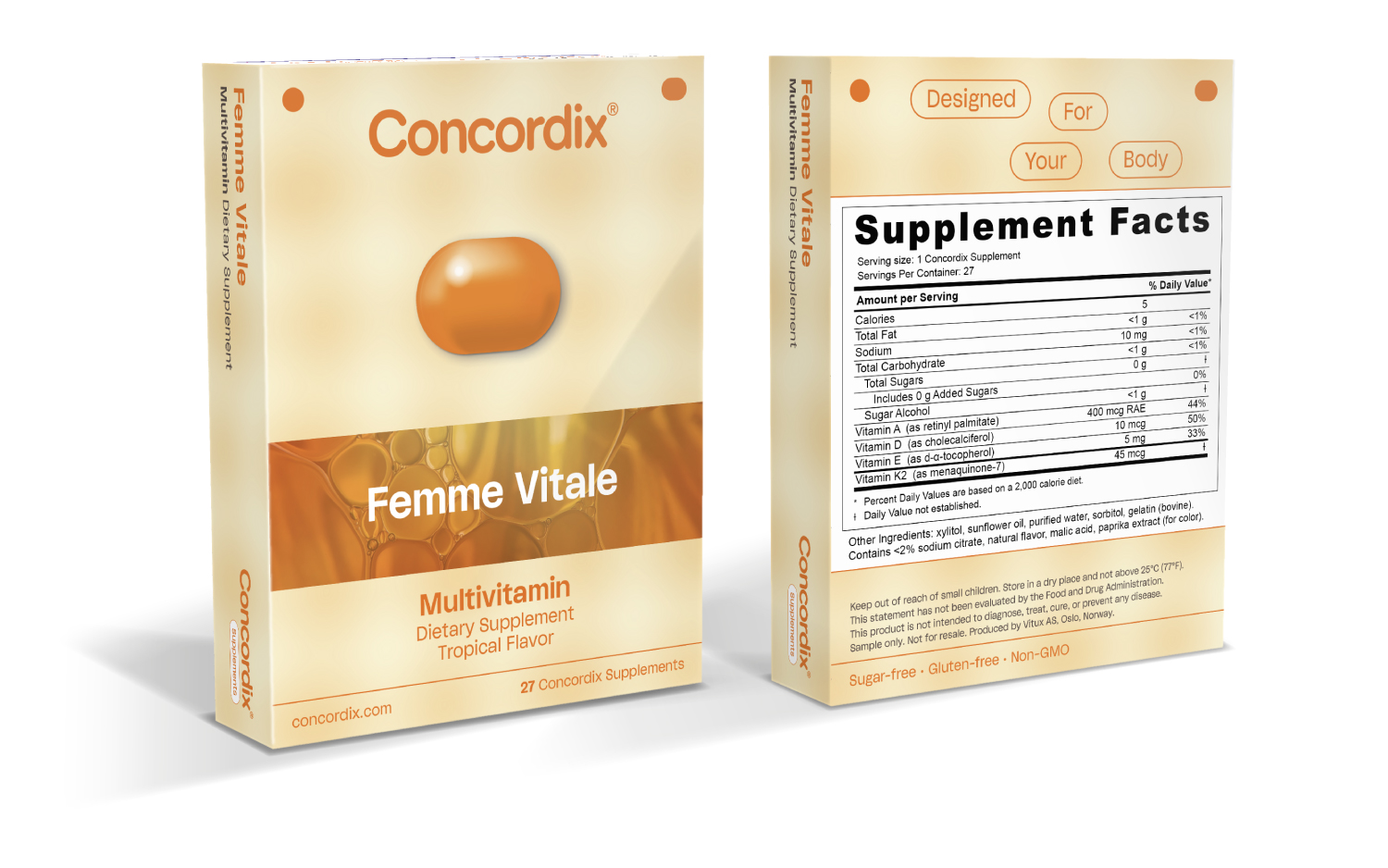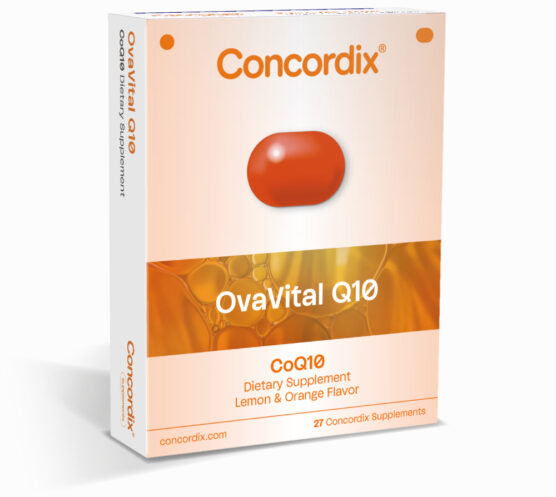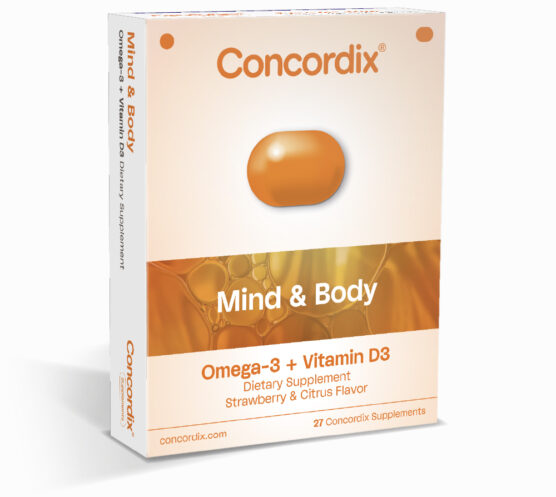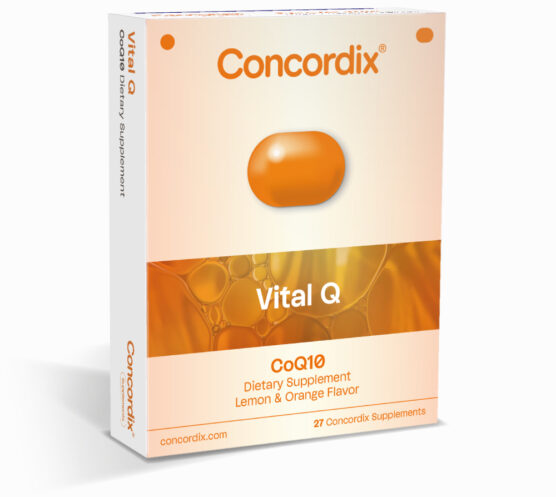• Serving Size: 1 Concordix Supplement
• Flavor: Citrus & Strawberry (other flavors available)
• Color: Orange
• Packaging: Individually sealed in aluminum blister packs; cartons made from recycled material available
Key Ingredient Benefits
• Vitamin K2 and D3 work synergistically to contribute to the maintenance of healthy bones, a key concern post-menopause.
• Vitamin A contributes to normal immune function.
• Vitamin E helps protect cells from oxidative stress, supporting the body’s antioxidant defenses.
Advanced-Delivery Nutrients for Maximum Potency
Using Concordix® patented emulsion technology, fat-soluble vitamins in Femme Vitale are gently suspended in billions of stabilized oil droplets to form a chewable emulsion, then sealed individually to protect against humidity, light, and oxidation. This keeps every chew fresh and potent, supporting reliability and effectiveness from first dose to last.
Concordix supplements are sugar-free, contain flavors from natural sources, and free from preservatives, with a delicious tropical-fruit flavor, making supplementation enjoyable and easy to incorporate into busy routines.
Comprehensive Nutritional Benefits
• Essential fat-soluble vitamins A, D3, E, and K2 for bone strength, immune function, vision, and antioxidant protection.
• Advanced Concordix® technology defends ingredient stability and potency for consistent results.
• Naturally fruit-flavored, sugar-free, and easy to enjoy every day.
• Blister packaging preserves taste and potency.
Daily Nutrition, Smarter.
Concordix® Femme Vitale transforms everyday nutrition by delivering targeted fat-soluble vitamins in a formula designed to protect potency, simplify use, and support women in sustaining resilience and confidence beyond menopause.
These statements have not been evaluated by the Food and Drug Administration. This product is not intended to diagnose, treat, cure, or prevent any disease.



 Vitamin K is a group of structurally similar fat-soluble vitamins that are required for the complete synthesis of proteins involved in blood coagulation, and for controlling binding of calcium in the bones and other tissues. Without vitamin K, blood coagulation is seriously impaired, and uncontrolled bleeding occurs. Preliminary clinical research indicates that deficiency of vitamin K may weaken bones, potentially leading to osteoporosis, and may promote calcification of arteries and other soft tissues.
Vitamin K is a group of structurally similar fat-soluble vitamins that are required for the complete synthesis of proteins involved in blood coagulation, and for controlling binding of calcium in the bones and other tissues. Without vitamin K, blood coagulation is seriously impaired, and uncontrolled bleeding occurs. Preliminary clinical research indicates that deficiency of vitamin K may weaken bones, potentially leading to osteoporosis, and may promote calcification of arteries and other soft tissues.

